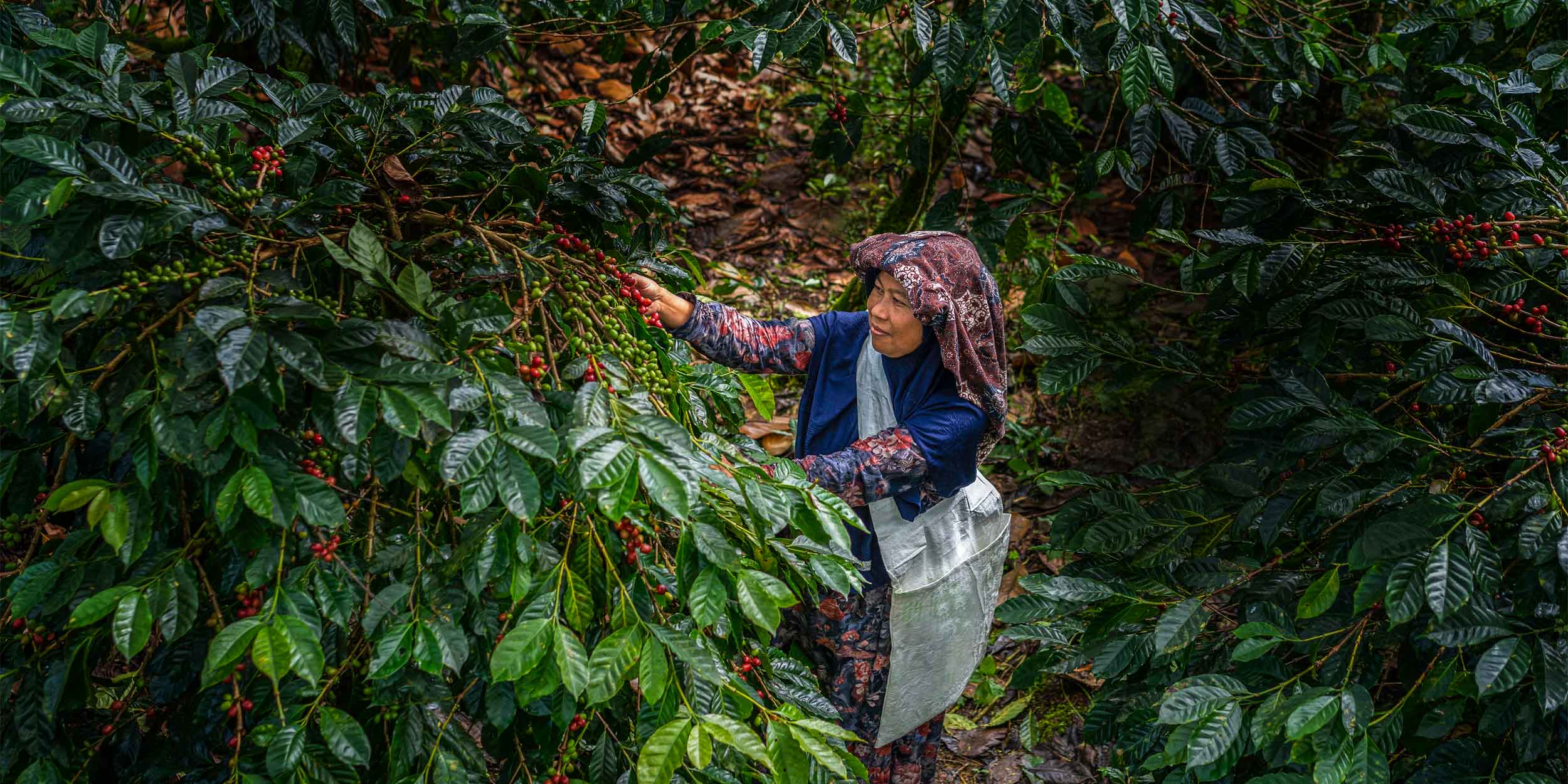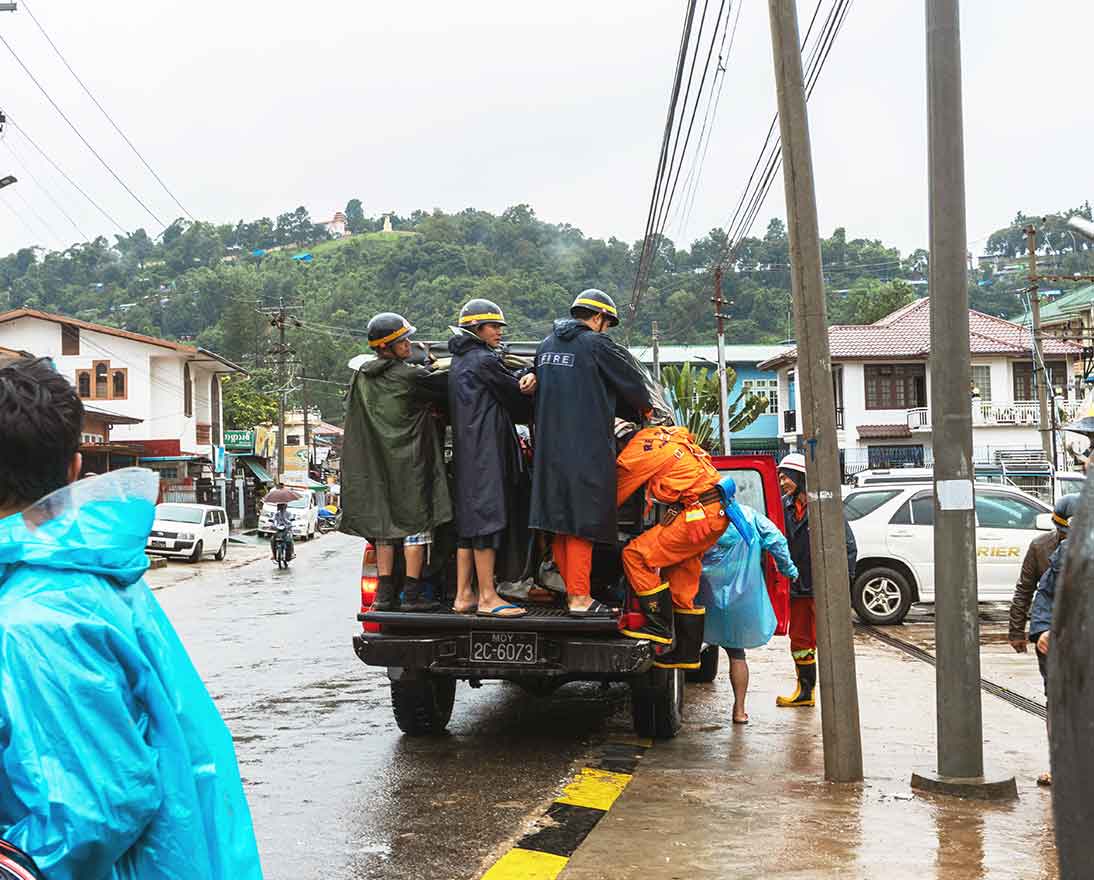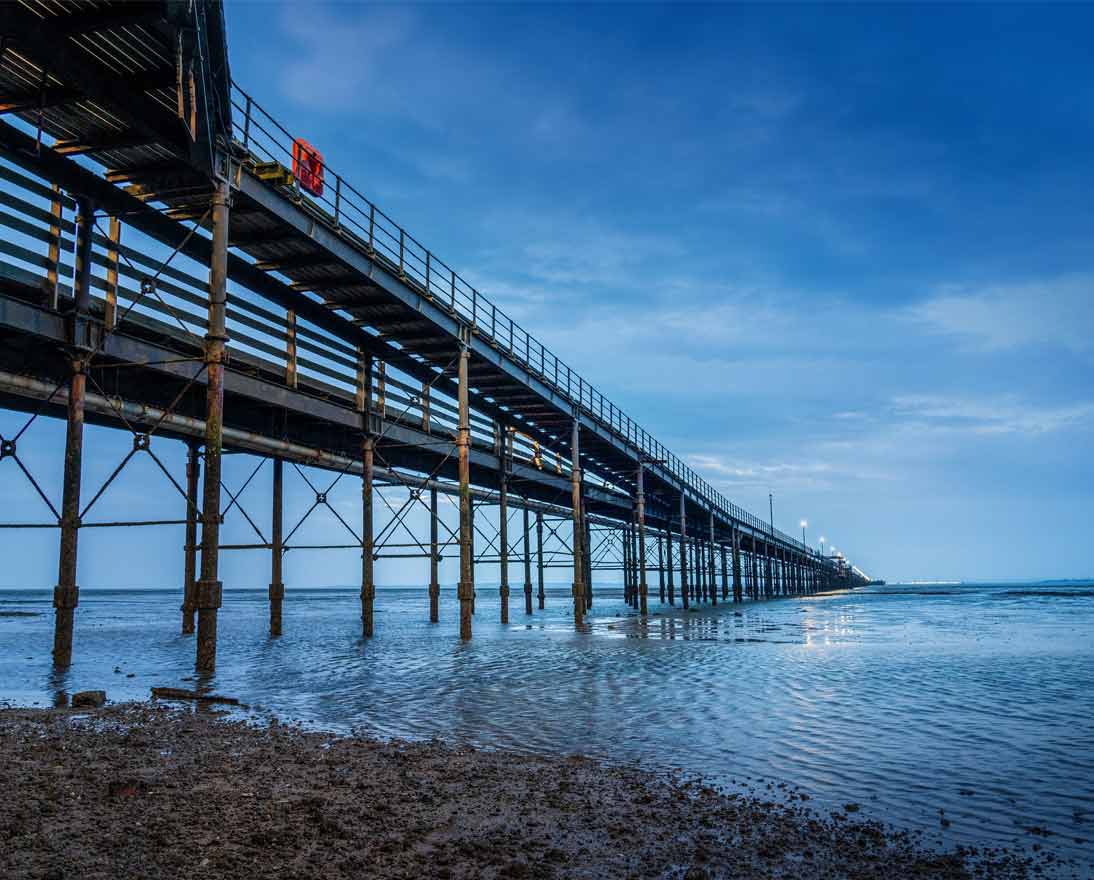Brewing resilience: How Zurich is protecting thousands of Indonesian coffee farmers from extreme weather
Climate resilienceArticleApril 17, 2025
Coffee farmers in northern Sumatra are vulnerable to extreme weather but most have no access to insurance or even a bank account. Zurich, together with impact insurtech provider Blue Marble, has developed an innovative way to help coffee plantations build climate resilience.
When it rains heavily – or doesn’t rain at all – in the remote Indonesian province of Aceh, the northernmost point of the island of Sumatra, coffee farmer Bu Heri begins to fret.
“It’s difficult and worrying because I fear the coffee will not be good,” she says, standing in her one-hectare plot and tugging the leaves of the crop, which she tends every morning from 8 a.m. “During a dry season the harvest is often poor.”
Around 99 percent of coffee production in Indonesia is grown on smallholdings by families or individual farmers, such as Bu Heri, according to World Coffee Research. Many don’t have a bank account. Yet they supply some of the biggest global coffee brands through farming collectives, making Indonesia the third-largest producer of robusta coffee beans in the world in 2023.
Coffee and other agricultural commodities represent about an eighth of Indonesian gross domestic product and some 1.3 million farms rely on coffee for income. Despite this, the farms often lack insurance coverage to protect against crop failure or a decrease in production caused by too much or too little rainfall. Meanwhile, financial education and financial inclusion of remote farming communities present further problems.
Protecting the underinsured
The remote location of the farms in Aceh, a mountainous region covered by rainforest, also makes conventional, on-the-ground site inspections by claims handlers difficult and time consuming. This renders traditional insurance products impractical for most of the coffee farmers.
That’s why PT Zurich General Takaful Indonesia (Zurich Syariah), part of Zurich Indonesia, and Blue Marble, which specializes in developing insurance products for underserved communities, developed a low-cost weather index-based insurance, known as parametric insurance. As well as providing protection and fast payouts, the parametric insurance – called Syariah Parametric Weather Index Insurance – is also structured as a takaful product, a type of Islamic insurance, and is compliant with sharia principles. Zurich Syariah and Blue Marble worked closely with local stakeholders, including farming groups and the government, to develop and gain regulatory approval for the product.
How parametric insurance works
Parametric insurance works by using pre-set triggers – such as extreme rainfall or drought – to determine automatic payouts. Unlike traditional insurance, which requires on-site damage assessments, parametric insurance uses independent weather and environmental data to deliver automatic, transparent and fair payouts. This ensures that those in need receive timely financial support without delays or complex claims processes.
“Access to insurance in underserved communities makes a real difference to people’s lives and supports both resilience to weather and financial inclusion,” says Zurich Group Chief Underwriting Officer Penny Seach, who is also a member of the board of Blue Marble. “As an insurer, Zurich has a part to play by using its market expertise to develop solutions suited to underserved communities.”
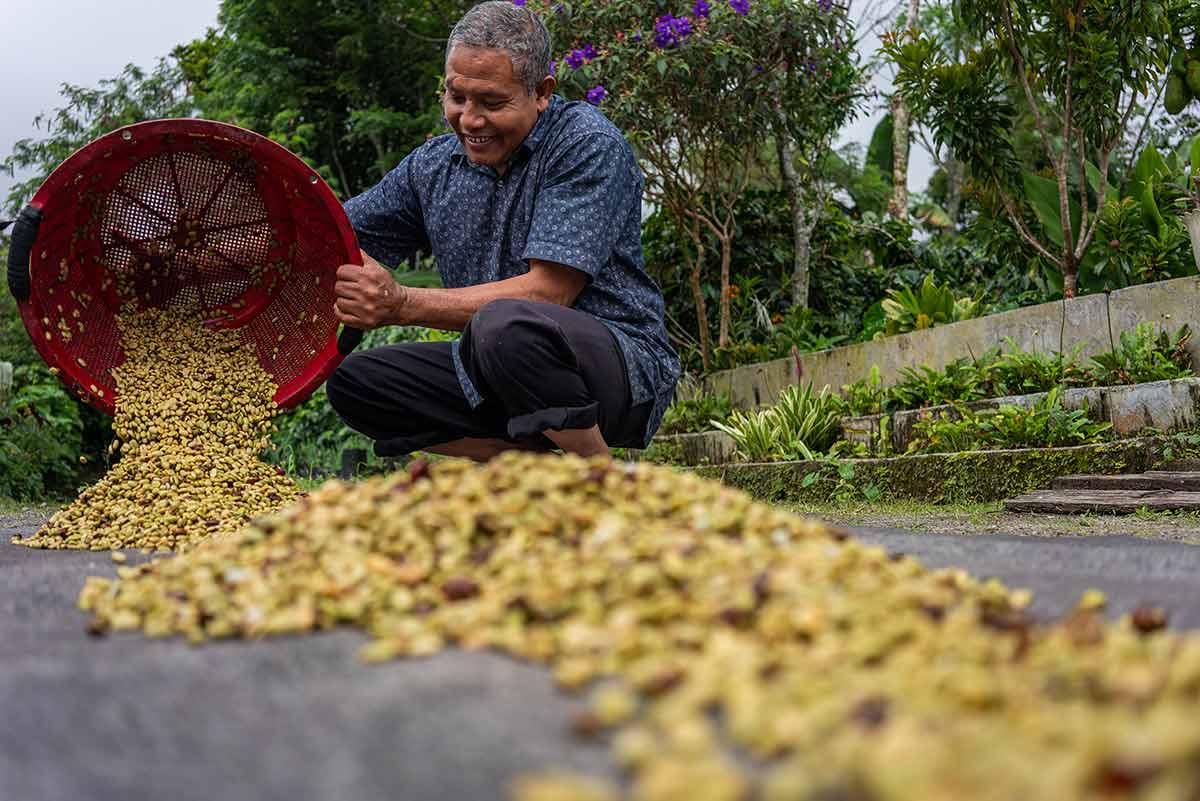
Covering the full crop cycle
Syariah Parametric Weather Index Insurance covers coffee farms in Aceh throughout the growth cycle of the crop, which is sensitive to extreme fluctuations in rainfall. Excess rain can damage flowering of the coffee crop, while extended dry weather can impact the maturation of the beans.
Payouts to farmers are triggered by both pre-determined upper and lower limits of rainfall, indicating excess rain and drought, respectively. The limits are tailored to the specific needs and conditions of each farming collective or cooperative and are based in part on historic data. Blue Marble monitors the weather data by satellite at the end of each phase of the growing cycle. If coffee farmers have been affected by excess rain or drought, Blue Marble tells Zurich Syariah to make an automatic payment. The payouts enable growers to buy seeds for the next season or temporarily help family finances.
“The use of objective information and measurements based on real-world events eliminates the need to gather more details through on-site inspections, which could take three to four months, and enhances the economic resilience of the farmers by paying claims quickly,” explains President Director of Zurich Syariah Hilman Simanjuntak.
There was a drought in 2024 and the year before that, there was heavy rainfall, according to farmer Isran Fajri, who maintains a quarter hectare plot in Aceh. The weather caused concern among the community, he explains.
“The likelihood of the yield decreasing is quite high, it’s not just a slight decrease, but it could be much lower than the previous year,” Fajri says, standing in front of his coffee plants.
It’s a story echoed by a fellow farmer, who goes by the single name Sutarman. He manages one hectare of land with help from one or two additional workers who till the soil and weed the crop. The 2024 season was excessively dry, he says, plucking coffee cherries from the plants.
“Due to the drought the crops haven’t matured properly,” Sutarman says. “They’re ripening prematurely. In this case, insurance is very helpful.”
No bank account? No problem
One of the challenges that Zurich Syariah and Blue Marble had to overcome is that most coffee farmers in Aceh do not have a bank account and prefer to keep their money at home, conducting transactions in cash. Making payouts to farmers without bank accounts remains a challenge, according to Blue Marble. Some payouts have been distributed through cooperatives, but work is ongoing with microfinance institutions that have a rural presence to help farmers create bank accounts. This enables direct payouts from insurance claims and provides broader benefits from greater financial inclusion, supporting the long-term economic resilience of the farmers.
“The goal is to boost the uptake of insurance in the agricultural sector in Indonesia, strengthen the resilience of farmers to extreme weather events, and increase financial inclusion by encouraging coffee growers to open bank accounts”, says Zurich Indonesia Country Manager Edhi Tjahja Negara.
“The product is also an innovative way to reach new customers and promote awareness of insurance among the Indonesian population,” he says.
Zurich Syariah works with local organizations to run educational sessions on the importance and convenience of having a bank account. In addition, some farmers are given access to an app which enables them to buy fertilizers, seeds and agricultural equipment. The app features an e-wallet that can be used for cash withdrawals and transactions in stores.
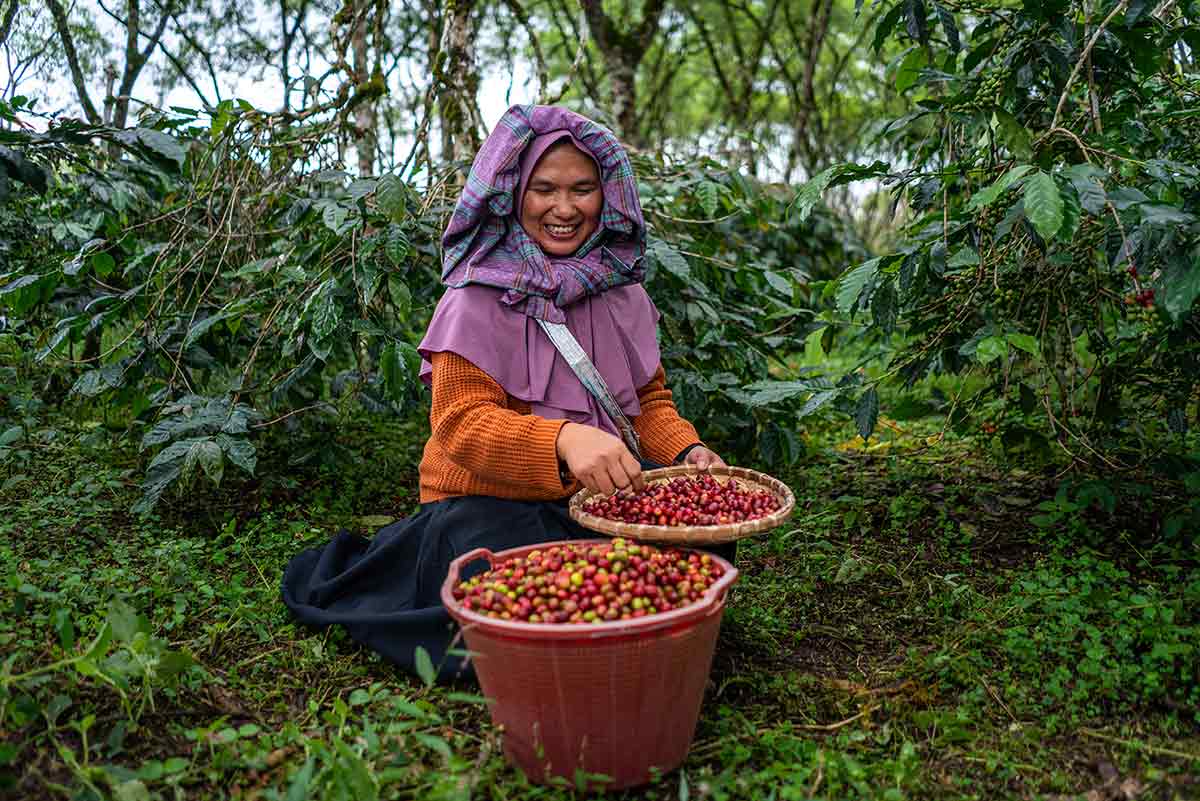
Building a resilient coffee sector
“Expanding insurance access to smallholder coffee farmers in Indonesia is more than just a financial safeguard – it’s a transformative tool for resilience,” says Jaime de Piniés, CEO of Blue Marble. “It not only secures the livelihoods of farmers but also fosters a sustainable market for agricultural insurance, proving that financial inclusion and risk management go hand-in-hand in building a more resilient coffee sector. We recognize Zurich for their pioneering role in making this vision a reality in Indonesia, paving the way for a stronger and more secure future for smallholder farmers.”
Since Syariah Parametric Weather Index Insurance was launched in 2022, Zurich Syariah has reached thousands of coffee farms and paid out about USD 50,000 in claims as of December 2024. Parametric insurance for cocoa farmers was launched in December 2023, with Zurich Syariah exploring rolling out similar products for other agricultural commodities in the future.
For the coffee farmers of Aceh, however, the benefits of the parametric insurance exceed the financial protection.
“We feel helped by this parametric insurance because we feel the cooperative cares about farmers,” says one farmer by the name of Sopian, who is a member of the cooperative Koperasi Arinagata in Aceh. “We hope that, in the future, training on climate change can be given to farmers.”
About Blue Marble
Zurich Insurance Group has been a founding member of the Blue Marble consortium since its inception in 2015.
Blue Marble partners work with insurance companies to deliver protection to underserved families and businesses, closing the protection gap for communities most vulnerable to climate and health-related catastrophes. Leveraging its proven, proprietary technology, Blue Marble designs and implements tailored, affordable insurance solutions that enhance financial resilience.
“We’ve been working with Blue Marble to help remote and vulnerable communities, which are traditionally underserved by insurance, become more resilient to meteorological shocks,” says Zurich Insurance Group Chief Underwriting Officer Penny Seach, who is also member of the board of Blue Marble.
“By creating innovative insurance products, such as parametric insurance, we’re helping to build resilience to losses caused by extreme weather in these communities. It has a tangible, positive impact on people’s lives,” adds Seach.
Blue Marble operates in 15 countries, collaborating with private and public sector partners to scale innovative insurance programs. It is owned by a consortium of leading insurance companies.
For more information, visit www.bluemarblemicro.com.
